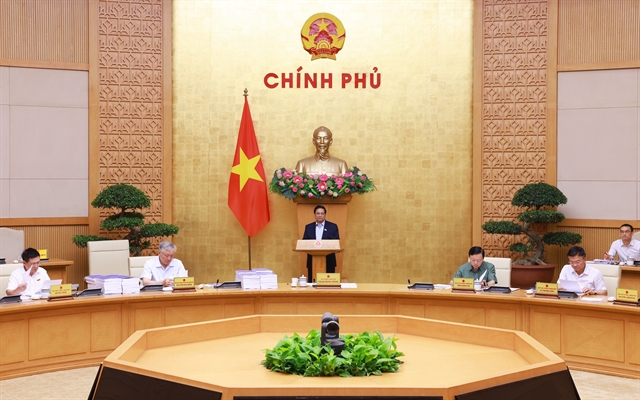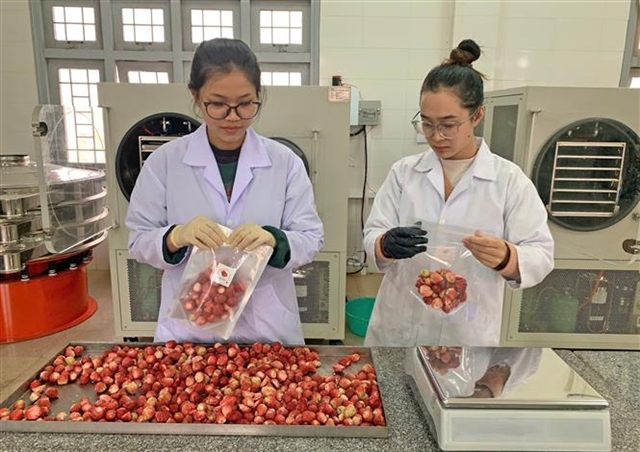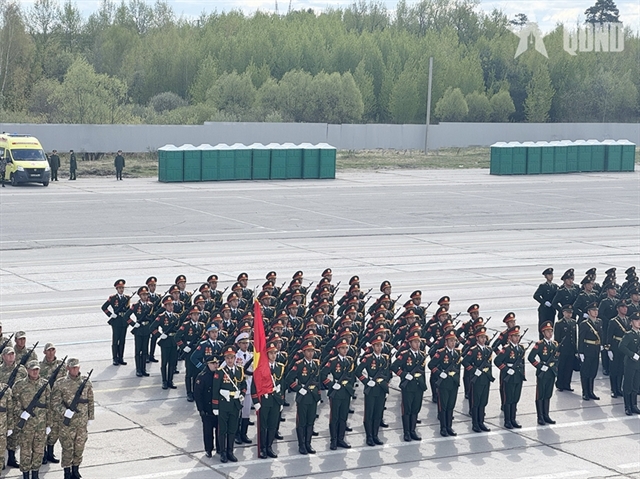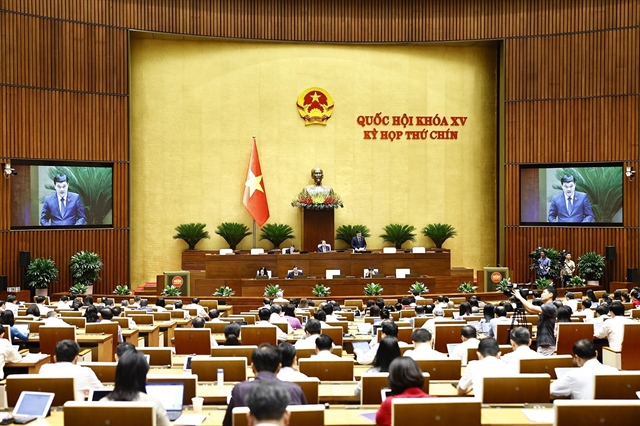 Politics & Law
Politics & Law

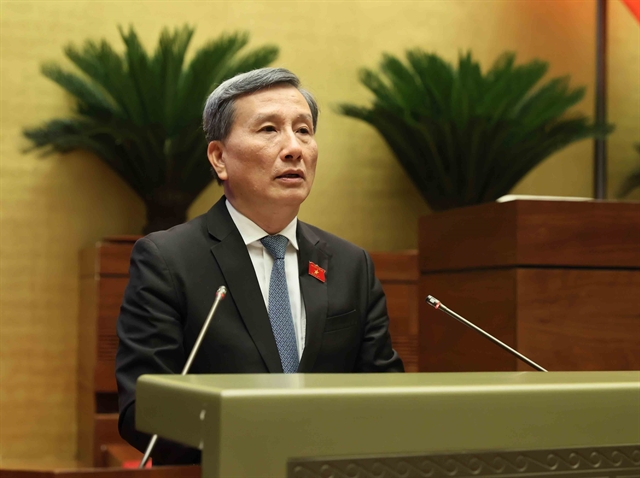 |
| Chairman of the National Assembly's Committee on Science, Technology and Environment Lê Quang Huy presents a report on the draft amended Law on Chemicals. — VNA/VNS Photo An Đăng |
HÀ NỘI — The National Assembly (NA) on Thursday morning discussed the draft revised Law on Chemicals, with suggestions that promoting dangerous chemicals, including on online networks, is specifically banned.
Delegates debated this along with major issues related to the draft law, during their ongoing ninth session.
Presenting a report on the law, Chairman of the NA's Committee on Science, Technology and Environment Lê Quang Huy said that the draft law, after being revised and completed, included eight chapters and 52 articles.
Some deputies suggested to review regulations on conditions for chemical consulting activities to ensure a favourable environment for investment and business.
The NA Standing Committee believes that chemicals are a field with a high risk of incidents, and chemical consulting activities are directly related to labour safety, human health and environmental protection.
Therefore, organisations and individuals providing consulting activities in the chemical field, including technology design, equipment selection and installation, planning, measures to prevent and respond to chemical incidents, need to have in-depth expertise in chemicals, technology and chemical safety.
Regulations on conditions for organisations and individuals providing specialised consulting services in the chemical field and granting certificates to individuals aim to ensure the consulting process quality, improve chemical safety work effectiveness and ensure project investors’ rights.
The work also helps select appropriate, safe, effective, and cost-saving technological and construction solutions, thereby minimising risks and keeping safety for the community.
Therefore, it is recommended to maintain the regulations on specialised chemical consulting as in the draft law.
In addition, to avoid creating administrative burdens for consulting businesses, the law assigns the Government to regulate the procedures for granting certificates.
It is expected that an online certification system will be applied to chemical consulting activities.
Regarding the Chemical Incident Prevention and Response Plan in Article 39, some opinions suggested studying and re-evaluating the basis and feasibility of the regulations to ensure smooth and effective implementation in practice and suitable with the Law on Civil Defence, the Law on Environmental Protection, the Law on Occupational Safety and Hygiene.
They also wanted to review the Law on Environmental Protection to integrate the chemical incident response plan and environmental incident response plan.
According to the NA Standing Committee, the Chemical Incident Prevention and Response Plan is in accordance with the Chemical Law 2007.
They enhanced the chemical incident response capacity of forces, limiting risks of incidents and minimising chemical consequences.
Proposal
Through discussion, delegates said that the draft amended Law on Chemicals submitted to the NA has been basically completed, which is an important step forward in establishing a legal basis for chemical management.
To continue perfecting the draft law, delegates suggested that the drafting agency should create consistency with the Law on Pharmacy, the Law on Corporate Income Tax, the Law on Management and Use of Weapons, Explosives and Support Tools and other related laws.
The draft law prohibits several acts such as illegal production and trading of chemicals, repairing and counterfeiting licences, providing false information and using chemicals of unknown origin.
But, delegate Thạch Phước Bình from Trà Vinh Province said that currently, the situation of taking advantage of social networking platforms, e-commerce and online trading floors to sell and promote dangerous chemicals, especially drug precursors, flammable and explosive chemicals, was very common.
The acts are anonymous and pose a risk of harming chemical security and public safety, but are not clearly defined in the prohibited acts.
Therefore, he proposed adding a new clause to Article 3 on prohibited acts ‘taking advantage of digital platforms, social networks, websites, and e-commerce trading floors to advertise, sell, trade, and supply dangerous chemicals illegally’.
At the same time, he proposed regulations assigning responsibility to the Ministry of Science and Technology to coordinate with the Ministry of Industry and Trade and the Ministry of Public Security in inspecting and handling violations in the online environment.
Delegate Đoàn Thị Lê An from Cao Bằng Province also proposed to add another prohibited act in the draft law, which was using toxic chemicals that directly affect plant varieties, the environment and human health. Because the problem has occurred a lot on vegetables and fruits, affecting the health of consumers.
In addition, she proposed to add a regulation that ‘organisations and individuals importing chemicals are responsible for classifying and labeling chemicals according to regulations of the Ministry of Industry and Trade, reporting the results to competent state management agencies; at the same time, stop putting chemicals into use and circulating on the market until completing the information update according to regulations’.
Delegate Trần Khánh Thu from Thái Bình Province suggested the drafting committee to review and consider special chemicals, banned chemicals and dangerous chemicals in the research and production testing process.
She also wanted to add heavy penalties in cases of violations that cause unsafety and apply higher penalties for serious violations that cause adverse consequences to human health and the environment or endanger the community.
Besides, she proposed adding measures for transportation management through electronic invoices because the draft law was still not specific and had not demonstrated strictness in handling violations.
Delegate Dương Khắc Mai from Đắk Nông Province agreed with the content of the Chemical Incident Prevention and Response Plan.
She proposed to keep it in the draft law to ensure timely and proactive incident response in the context of unusual, uncertain and unpredictable developments.
Over the long term, she asked to set up a comprehensive national strategic solution, along with strong enough resources and modern technology to prevent chemical and environmental incidents early and from afar. — VNS



